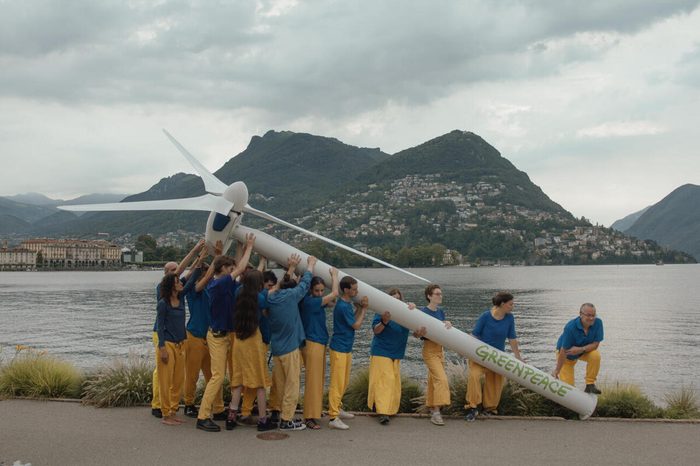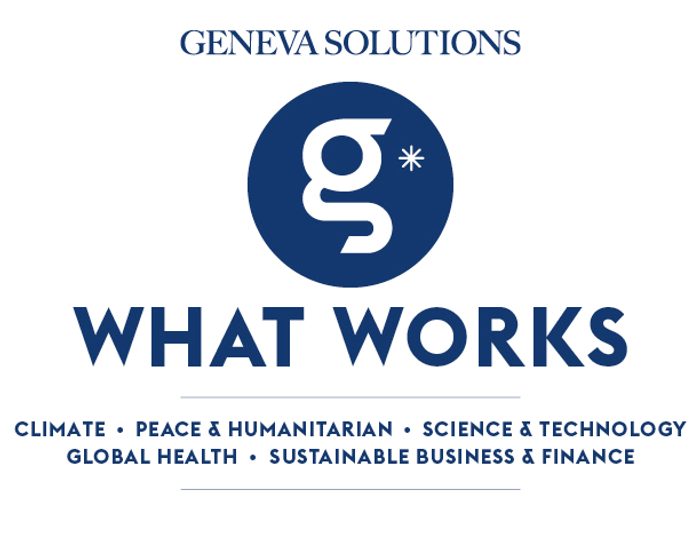Good morning, this is Kasmira. As European leaders made pledges this week in Lugano to support the reconstruction of a Ukraine after the war, it was clear that any recovery will have to include a sustainable reset of the country’s economy. But with the environmental damage of war, a need to rebuild fast and its heavy reliance on polluting industries, can the country really rebuild green? My colleague Michelle Langrand reports below.
Plus, the WHO is toughening its guidelines on marketing of unhealthy foods to children, and at the WTO, we learn that the battle over intellectual property rights for Covid-19 vaccines after a deal was signed last month is far from over. |
|
How green can Ukraine’s recovery really be?
|
|

Greenpeace activists raise a wind turbine replica near the Ukraine Recovery Conference in call for green reconstruction, on 4 July, 2022. (Credit: Greenpeace)
|
|
The war has taken a toll on Ukraine’s environment, polluting soils and rivers for decades to come. As Ukraine launched a reconstruction process at the Ukraine Recovery Conference, the commitment to restore ecosystems and rebuild the country in a green way was in everyone’s lips.
But with an economy heavily dependent on polluting industries, European countries rushing to cut oil and gas dependency on Russia and billions of dollars in infrastructure damage to repair, the environment might just be put on the back burner.
Cleaning up from the wastes of war
The siege of the Azovstal steel works in Mariupol, the takeover of the Zaporizhzhia nuclear power plant or the bombarding of the Avdiivka coke and chemical plant in Donetsk are a reminder of the environmental risks that war poses.
Since the beginning of the Russian invasion, there have been over 580 disruptions in industrial and infrastructure facilities, according to figures by the Geneva-based Zoi Environment Network. Attacks on these sites have caused leakages of toxic substances into the water, air and soil that will need years of clean up work.
Speaking to Geneva Solutions and German TV, Ukrainian Minister of the environment Ruslan Strilet said: “The first step will be to clean our country from the wastes of war.”
Read the full story on Geneva Solutions
|
|
Here's what else is happening
|
|
GS news is a new media project covering the world of international cooperation and development. Don’t hesitate to forward our newsletter!
Have a good day!
|

|
|
Avenue du Bouchet 2
1209 Genève
Suisse
|
|
|
|








